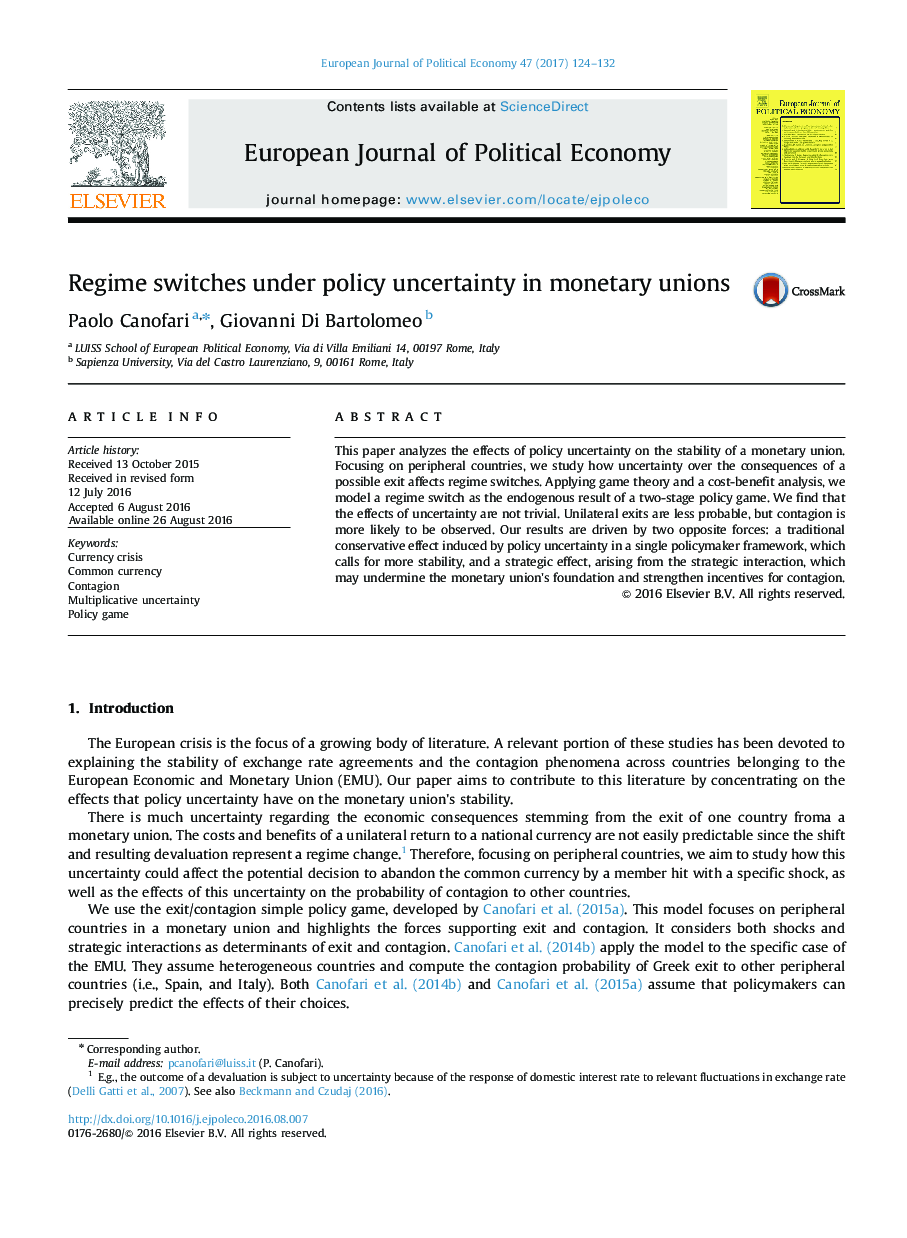| Article ID | Journal | Published Year | Pages | File Type |
|---|---|---|---|---|
| 5067804 | European Journal of Political Economy | 2017 | 9 Pages |
â¢We study the role played by policy uncertainty on the European Monetary Union stability.â¢Our model considers a three country monetary union consisting in two peripheral countries and one core economy.â¢We consider a simple linear-quadratic framework and we analyze the outcomes of a two-stage policy game.â¢We find that uncertainty reduces the probability of unilateral exits.â¢We show also that uncertainty can make contagion more likely to occur.
This paper analyzes the effects of policy uncertainty on the stability of a monetary union. Focusing on peripheral countries, we study how uncertainty over the consequences of a possible exit affects regime switches. Applying game theory and a cost-benefit analysis, we model a regime switch as the endogenous result of a two-stage policy game. We find that the effects of uncertainty are not trivial. Unilateral exits are less probable, but contagion is more likely to be observed. Our results are driven by two opposite forces: a traditional conservative effect induced by policy uncertainty in a single policymaker framework, which calls for more stability, and a strategic effect, arising from the strategic interaction, which may undermine the monetary union's foundation and strengthen incentives for contagion.
